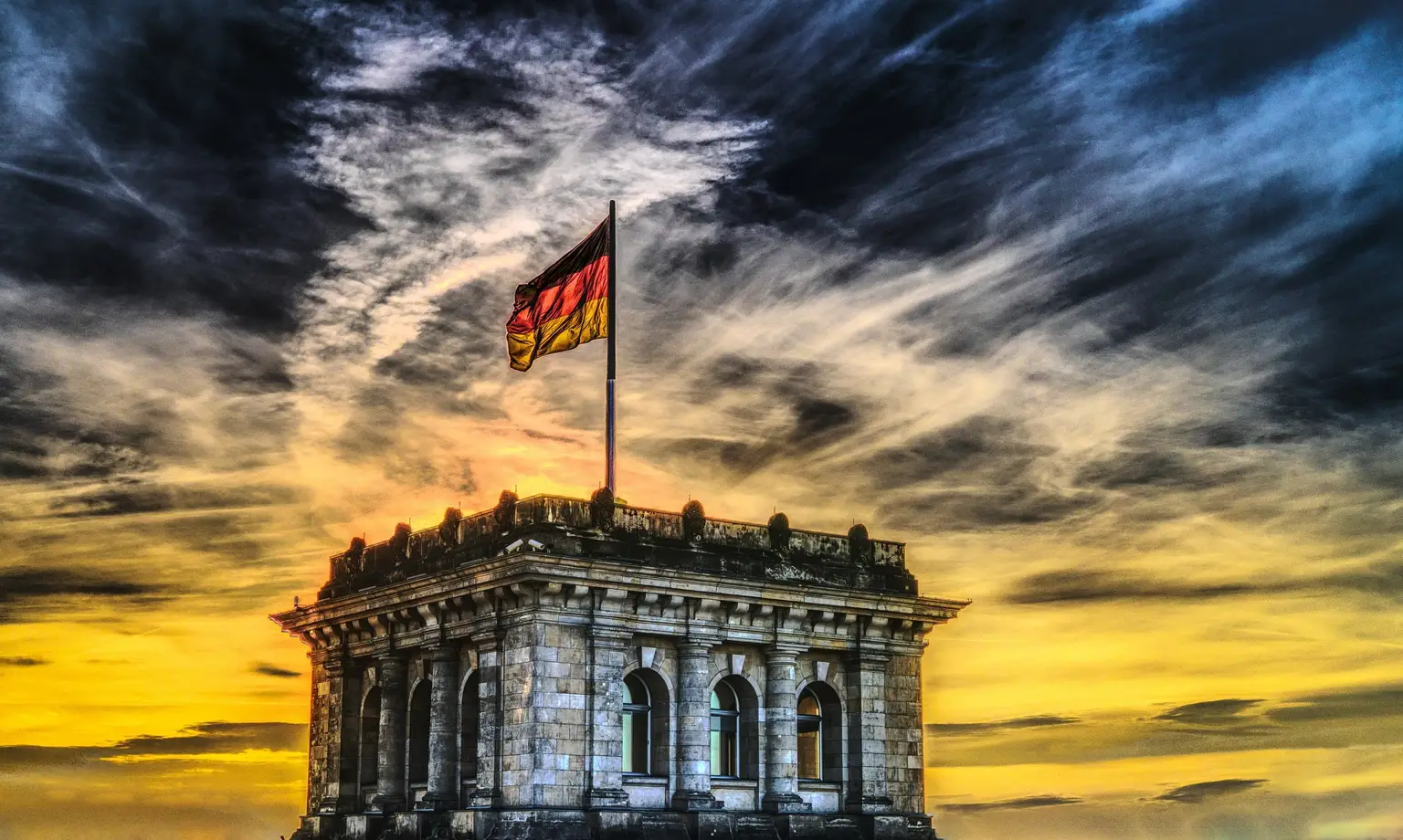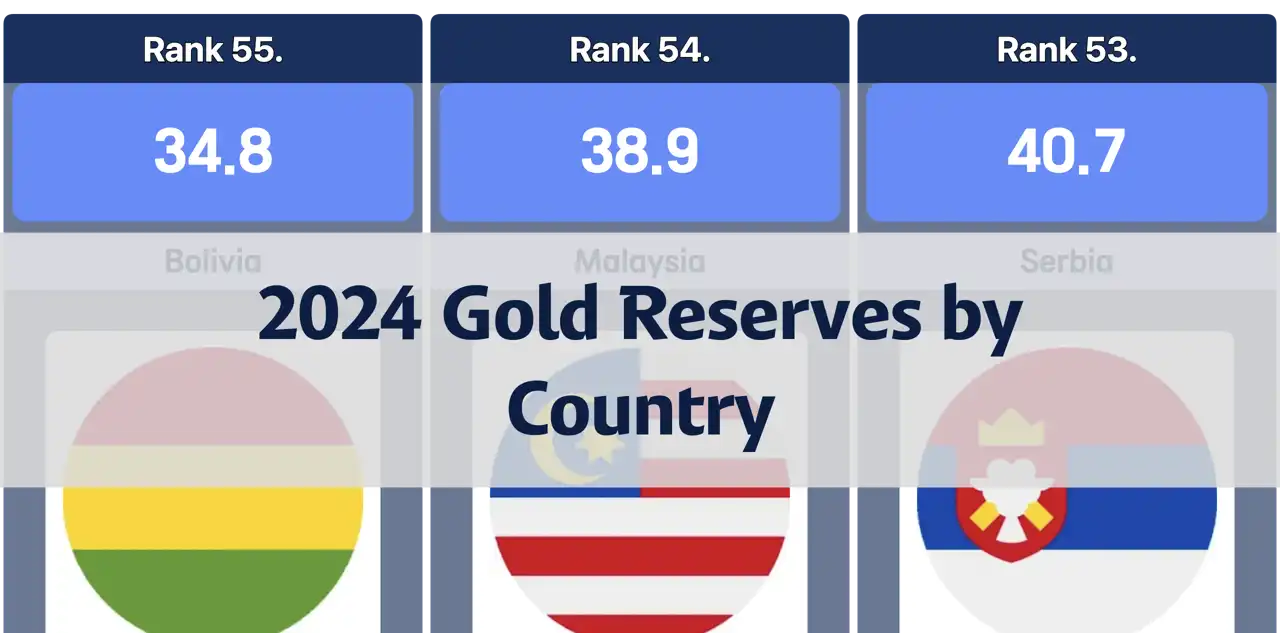
Gold Reserves by Country in 2024: Which Nations Hold the Most?
- ASUMUP
- Economy
- November 2, 2024
Gold has long been considered a cornerstone of economic stability and power. Many nations accumulate large gold reserves as a safeguard against financial crises and to reinforce their currency’s value. In 2024, the top ten countries with the largest gold reserves reveal the extent to which various economies prioritize gold as a core part of their financial security.
The rankings include both well-established financial powerhouses and emerging economies, each holding considerable gold assets for different strategic purposes. While the United States leads by a significant margin, European and Asian countries also dominate the list. This distribution not only highlights the global value of gold but also reflects each country’s approach to economic resilience and long-term stability.
Examining the top ten countries in terms of gold reserves provides insights into which nations prioritize precious metals as a defense against global market fluctuations. Here’s a closer look at the 2024 gold reserve rankings and what they reveal about each country’s financial strategies.
Top 2024 Gold Reserves!
- 1st United States - 8,133.0 tons
- 2nd Germany - 3,352.0 tons
- 3rd Italy - 2,452.0 tons
- 4th France - 2,437.0 tons
- 5th Russia - 2,336.0 tons
- 6th China - 2,264.0 tons
- 7th Switzerland - 1,040.0 tons
- 8th Japan - 846.0 tons
- 9th India - 841.0 tons
- 10th Netherlands - 612.0 tons
10th Netherlands - 612.0 tons
These reserves reflect the Netherlands’ focus on maintaining stability and financial security, underscoring its prudent economic approach within the European Union.
ID: NLD
9th India - 841.0 tons
India’s reliance on gold supports the rupee and reinforces financial stability, even as the country continues its rapid economic development and expansion.
ID: IND
8th Japan - 846.0 tons
As Japan navigates both domestic and international economic challenges, these reserves ensure additional resilience, supporting the yen’s stability and the country’s economic future.
ID: JPN
7th Switzerland - 1,040.0 tons
Gold’s role in Switzerland's financial policies provides a foundation of stability and security, ensuring the country’s enduring reputation as a safe haven for global capital.
ID: CHE
6th China - 2,264.0 tons
China’s ongoing efforts to increase its gold reserves align with its long-term goal of positioning the yuan as a global currency. Gold provides a buffer for China’s economy, helping to mitigate risks from trade and currency fluctuations.
ID: CHN
5th Russia - 2,336.0 tons
This approach highlights Russia’s focus on achieving financial independence, with gold reserves playing a central role in its efforts to protect the ruble and the economy from external pressures. Russia’s gold reserve is both a shield and a strategic asset.
ID: RUS
4th France - 2,437.0 tons
France’s gold reserves support its influence within the European Union, providing economic stability that complements the Eurozone's collective strength. By holding significant gold, France emphasizes its long-term commitment to financial security amid changing global conditions.
ID: FRA
3rd Italy - 2,452.0 tons
Italy’s gold reserve reflects the nation’s historical value placed on gold as an enduring financial asset, balancing out the fluctuations within the Eurozone. This reserve also provides Italy with a measure of autonomy within the European Union, allowing it to leverage its gold for financial stability.
ID: ITA
2nd Germany - 3,352.0 tons
By holding significant gold assets, Germany strengthens its position within the Eurozone, supporting both national and regional financial stability. Its robust reserve is a testament to Germany’s conservative yet powerful economic strategy that prioritizes secure, long-term growth.
ID: DEU
1st United States - 8,133.0 tons
The United States’ gold holdings contribute significantly to the dollar’s value as the global reserve currency, which supports international trade and investment flows. By maintaining the world's largest gold reserves, the United States underlines its influence on global finance, ensuring its currency remains trusted worldwide.
ID: USA
Other Posts in the Economy
Categories
- National Rankings(43)
- Science & Technology(1)
- Sports(24)
- Economy(30)
- Society(12)
- Culture(7)
Recent Posts
![Bayern Spent HOW MUCH on Harry Kane?! Ranking Their Top 10 Biggest Signings Ever]() A deep dive into Bayern Munich's ten most expensive transfers, exploring how the club's spending strategy has evolved to chase European glory.
A deep dive into Bayern Munich's ten most expensive transfers, exploring how the club's spending strategy has evolved to chase European glory.![Arsenal's Record-Shattering Spree: From a €116M Gamble to a Flop, Who Was Worth the Cash?]() A deep dive into Arsenal's top 10 most expensive signings, analyzing the successes, the failures, and the massive fees that have defined the club's modern transfer strategy.
A deep dive into Arsenal's top 10 most expensive signings, analyzing the successes, the failures, and the massive fees that have defined the club's modern transfer strategy.![Chelsea Cashes In BIG TIME! Who Really Won the 25/26 Summer Transfer Window Money Game?]() A deep dive into the top 10 clubs that made the most money from player sales during the wild 25/26 summer transfer window.
A deep dive into the top 10 clubs that made the most money from player sales during the wild 25/26 summer transfer window.![Liverpool's Record-Breaking €483M Spree! Did They Just Buy the Premier League Title?]() A deep dive into the 25/26 summer transfer window reveals Liverpool's record-breaking spending spree as Premier League clubs continue to dominate the market.
A deep dive into the 25/26 summer transfer window reveals Liverpool's record-breaking spending spree as Premier League clubs continue to dominate the market.![You Won't Believe How Much a Loaf of Bread Costs in These Countries! (Spoiler: It's INSANE)]() This post explores the top 10 countries with the most expensive bread, revealing how factors like import reliance and tourism dramatically inflate the cost of this basic staple.
This post explores the top 10 countries with the most expensive bread, revealing how factors like import reliance and tourism dramatically inflate the cost of this basic staple.
















